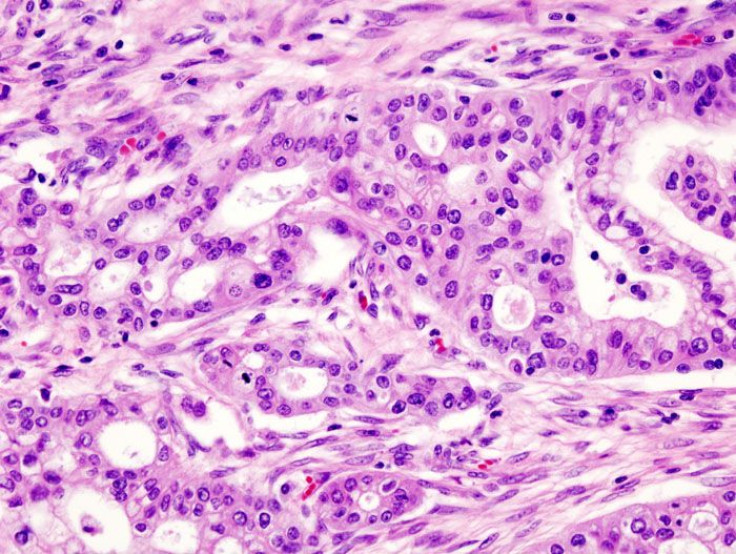New Road Map Of Pancreatic Cancer May Help Us Find Better Treatments, Raise Survival Rates

An expansive multinational team of researchers claim to have created the most accurate road map of pancreatic cancer to date — one that might enable scientists the ability to someday better combat an illness that’s often terminal.
Their study, published Wednesday in Nature, sequenced the genome of 462 tumors taken from pancreatic cancer patients, the majority of whom had yet to undergone treatment. In these tumors, they identified a recurring set of 32 genes whose mutations, through one of ten molecular pathways, spurned cancer growth. From there, they broadly classified the tumors into four subtypes, each with a distinct pattern of mutations, gene expressions, and even outward characteristics.
“The four subtypes that we have identified represent a reclassification of the disease and as such should provide a basis to offer new insights into personalised therapeutic options for individual patients and a launch pad to investigate new treatments,” said co-author Professor Andrew Biankin, Director of the Wolfson Wohl Cancer Research Center at the University of Glasgow in Scotland, in a statement released by the university.
The subtypes are: squamous, containing tumors resembling those found elsewhere in breast, bladder, lung, and head and neck cancer; pancreatic progenitor, involving genes known to be linked with the early development of the pancreas in embryos; ADEX, a subclass of the second, involving genetic processes that help govern the later stages of the organ’s development; and immunogenic, another type similar to pancreatic progenitor but which provokes an unique immune response compared to the rest.
Though previous attempts to better categorize pancreatic cancer have landed on definitions roughly similarly to the first three subtypes described in the Nature study, the discovery of pancreatic immunogenic tumors may hold the best promise for further research.
“The novel immunogenic subtype of pancreatic cancer is characterised by specific mechanisms that can potentially be targeted using immune modulators, and testing in clinical trials is encouraged,” Biankin explained.
Immunogenic tumors are known to be fairly detectable by the immune system, but certain types can stunt the body’s ability to effectively fight against it. It’s possible then the immune modulators referenced by Biankin may help the body get over these roadblocks.
“The findings of this research are incredibly exciting for anyone affected by pancreatic cancer, as they should mean that in the future the right patients can be given the right treatment at the right time,” said Leanne Reynolds, head of the charity Pancreatic Cancer UK. “This is crucial for people with pancreatic cancer, because the disease is difficult to diagnose, is often diagnosed terribly late, and just four percent of people live for five years or more after diagnosis.”
Profound as these findings may be, it should be noted that the study specifically examined pancreatic ductal adenocarcinomas, which comprise most (90 perecent) but not all pancreatic cancer cases. The researchers note that pancreatic cancer is currently the fourth leading cause of cancer death in the Western world, and is projected to be the second leading within a decade, though this is partly because it’s expected that cancer survival rates elsewhere will continue to increase.
Source: Bailey P, Chang D, Nones K, et al. Genomic analyses identify molecular subtypes of pancreatic cancer. Nature. 2016.



























